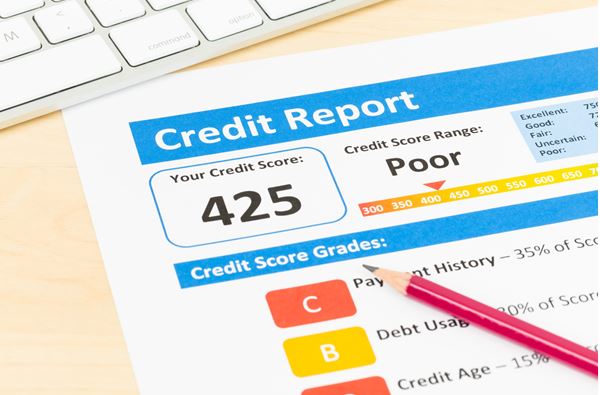When you are making financial decisions in the United States of America, one can argue that there is nothing more important than keeping your credit score high. Your credit score is basically the lifeblood of your financial well being and there is absolutely no way that you can escape the ramifications of having poor credit.

If you have bad credit it will be very difficult for you to borrow money for emergency expenses. You will also find it very difficult to be able to get a mortgage for a house or apply for a long-term lease on an apartment. So how do you avoid these crippling pitfalls and keep your credit score levels high? Here are the steps that you can take.
1. Pay Your Bills On Time
The first thing that you can of course do is just to pay your bills on time. Do not even think about it as on-time payments being good for your credit score, but late payments being horrible for your credit score. If you have a single late payment, that can stay on your credit report for as long as 7 years and it will be very difficult to get that off of your record.
Luckily, a lot of lenders give a grace period for you before your overdue payments is reported to the major credit bureaus. It can take as much as 3 months of straight delinquency for your payment to be reported as late. Do not take advantage of this fact, however, and always pay on or before your due dates.
2. Apply for Higher Credit Limits
Another very important factor that plays a big role in determining your credit score is something called your credit utilization. That is, how much of the credit that is available to you is actually being used up. If you have a credit limit of $8000 on your credit card, for example, and you are using $7800, your credit utilization is obviously alarmingly high and that can knock your credit score down a few points. When you apply for higher credit limits and maintain the same balance, your credit utilization will become lower because now you have more credit available to you but you are not using as much of it.
3. Use Secured Credit Cards
If you are someone that does not really have a lot of credit history, the best option for you to build your credit is by simply using a secured credit card. A secured credit card is different in that it is actually backed by cash that you deposit, so you not paying your balance is something that the financial institutions would not be worried about as much.
If you use secured credit cards for long enough, you will have the necessary tenure and payment history to apply for and get approved for a regular credit card. This is a great way for students to build their credit histories.
4. Keep Your Credit Cards Open
You should remember that one of the main factors that decide your credit score is how long you have had your credit. Closing your credit cards is not the best idea because not only will it narrow down your credit utilization, it will also reduce your credit card history and therefore your credit score. Even if you do not use a card anymore, keep it open.
5. Apply for Multiple Forms of Credit
Variability is also one of the best things that you can do to make sure that you have a healthy credit score. Having credit cards is not a bad thing if you do not abuse them, having student loans is good if you know what you are signing up for, taking out a mortgage is helpful as long as you understand your terms. Having multiple forms of credit makes lenders know that you know what you are doing.
Keep these tips in mind and track your progress with the right credit report API so you will never have to worry about bad credit ever again!
Interesting Related Article: “No Credit? You Can Still Get a Business Credit Card“

